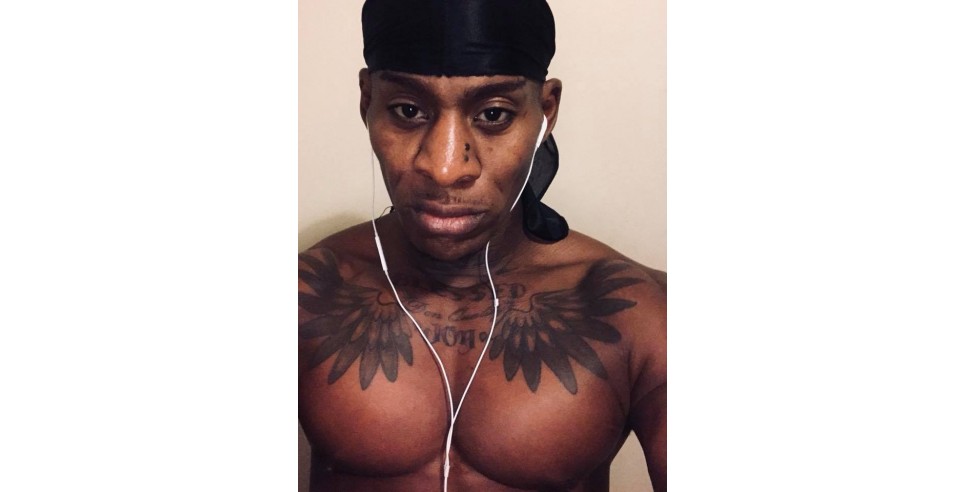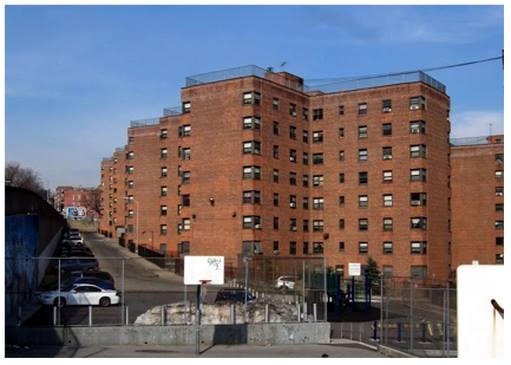
From Yonkers
by Patricia Vaccarino
I interviewed Yonkers Rapper DQ the don, whose given name is Derkquon Battle. His song called Yonkers slumtown caught my attention. I grew up in Yonkers about ten minutes away from where Derkquon lives in the Schlobohm Housing Projects—or "Slow Bomb" projects. While today our worlds are different, I like to know what threads we share in common. I can relate to Derkquon when he says, “You can’t scare me. I was born in Yonkers.”
Rapper Derkquon Battle who goes by DQ the don told me his story while he was walking on Walsh Road around Slow Bomb. Yonkers is different from other cities, and especially New York City, where the rich and poor sit shoulder-to-shoulder in subways and share the same streets. Yonkers is deeply stratified by neighborhood tranches that coexist, but do not meld together. Getty Square or Ghetto Square is only a few minutes from the wealthy Park Hill section, but the inhabitants of both areas rarely cross the line. Boundaries marked by skin color and money put an emotional fence around who gets in and who can’t get out.
The trouble with Yonkers is that it has a bad rap. No pun intended. Rapper DQ the don is done with messing around with the half-truths and bold lies depicting Yonkers as only a ghetto. He sets us straight with the hard truth that no one wants to talk about. He raps about blackness with raw strength and without offering apology. And why should he bother to apologize? The reality of the pain integral to life in the projects will take your breath away.
You see the news about police shooting young black men, most of whom are unarmed. You see the news where random drive by shootings are turning poor urban neighborhoods into killing fields. It doesn’t have to be this way, you might want to say, but it is this way and it’s not changing, not a bit. If anything, more people than ever are dying. Young men living in the ‘hood feel real pain when bad things keep happening to them and we should care about that. We should care about what happens to them.
Derkquon said, “In my heart I know that living in Yonkers is about staying strong. I want everybody to stay strong.” Derkquon was born in Harlem and as a baby lived in the projects around 125th street. Soon his mother moved the family to Yonkers, where they have been living in the Schlobohm Housing Projects on Schroeder Street.

It doesn’t matter whether you call the Schlobohm projects Slow Bomb or Slum Town, Derkquon remembers the happy times growing up: having fun, playing baseball and basketball on the street, running track and hanging around in Trevor Park. In the summer other families would get together and everyone would pitch in to barbecue. Everyone would come together and had a lot of stuff going on to make Slow Bomb a happening place.
Derkquon talks about his mom, Maxine Battle, as the most important person in his life. “I grew up around a lot of cool people, but no one compares to my mom. She’s a very good person. Smart mother. A very intelligent and strong woman like Oprah or Wendy Williams. She raised a son like me. And her mom died when she was my age. Her mom died the same day I was born. I can see how she was scarred and damaged from the Yonkers pain [she endured] growing up, but she still reaches out and shows real love.”
Derkquon cares about the people who live in his community and he also cares about the people—who for one reason or another—died too young. Seeing what happened to everybody: dead, in jail, or under federal investigation made him strong. His music is an anthem of true grit and speaks his pride in being young, black, human and powerfully alive.
https://www.youtube.com/watch?v=1qlqBcgf6a8&feature=youtu.be“I rap because I want them to know that Yonkers was the first thing that happened to me. I want them to know our life. To know our best side. I’m learning how to survive. By trying to survive, I’m becoming free.”








